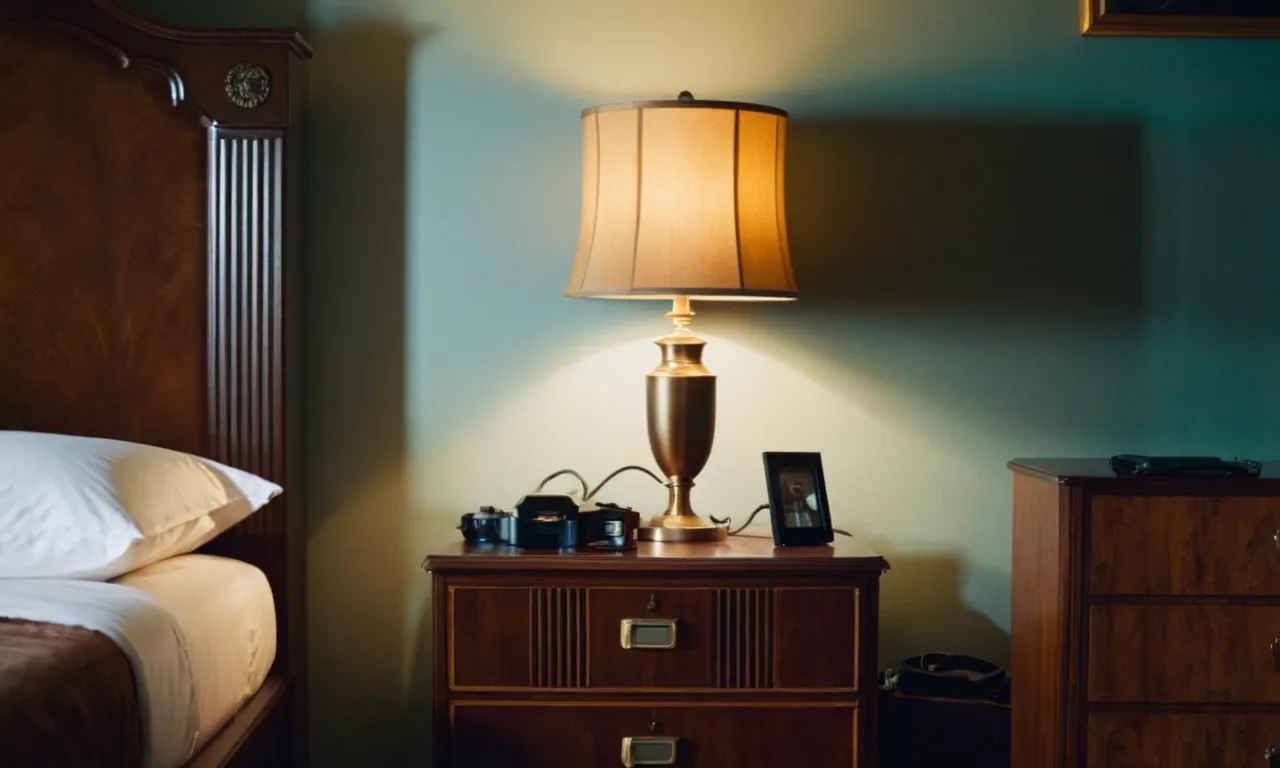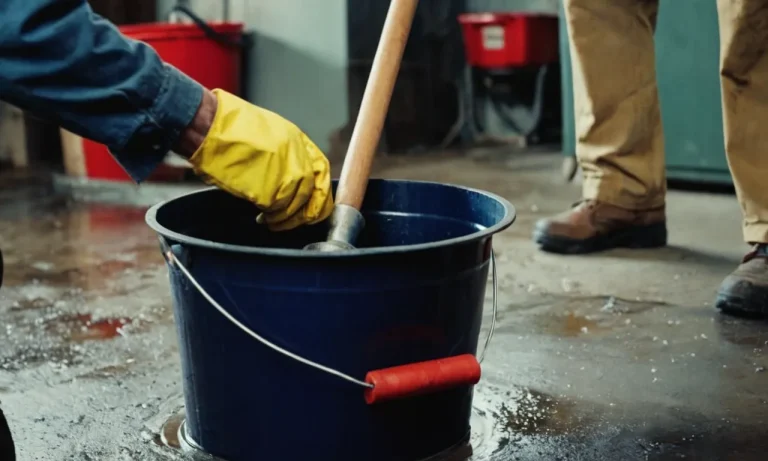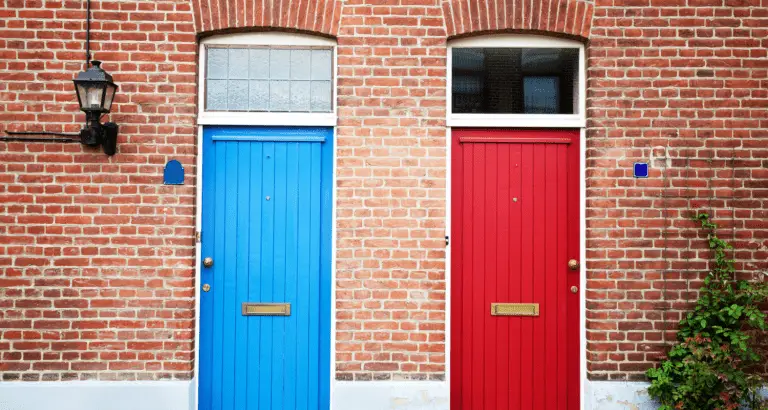What If A Hotel Charges Me For Damage I Didn’T Do?
Imagine this: you’ve just returned from a relaxing vacation, only to find an unexpected charge on your credit card statement from the hotel you stayed at, accusing you of causing damage to the property. It’s a frustrating situation that can leave you feeling helpless and unsure of what to do next.
If you’re short on time, here’s a quick answer to your question: If a hotel charges you for damage you didn’t do, you have the right to dispute the charge and provide evidence to support your case. The hotel must follow proper procedures and provide proof of the alleged damage before billing you.
In this comprehensive guide, we’ll explore the steps you can take to protect yourself from unfair charges, the legal rights you have as a guest, and the best practices for resolving such disputes with hotels.
We’ll also cover preventive measures to minimize the risk of being wrongfully accused of causing damage.
Understanding Hotel Damage Policies
Staying at a hotel should be a relaxing and enjoyable experience. However, there’s always the possibility that something could go wrong, and you might find yourself facing unexpected charges for damages you didn’t cause.
It’s crucial to understand hotel damage policies to protect yourself from unfair charges and ensure a smooth stay.
Common Types of Damage Hotels Charge For
Hotels can charge guests for a wide range of damages, including:
- Stained or damaged bedding, carpets, or furniture
- Broken or missing items, such as lamps, artwork, or electronics
- Holes in walls or doors
- Smoke damage from smoking in non-smoking rooms
According to a recent survey by Hotel News Resource, 78% of hotels reported charging guests for damages in the past year, with an average cost of $245 per incident.
Standard Procedures Hotels Should Follow
Reputable hotels should follow specific procedures when dealing with damage claims:
- Conduct a thorough room inspection before and after each guest’s stay
- Document any damages with photographs or videos
- Provide the guest with a detailed invoice outlining the charges and the specific damages
- Allow the guest to dispute the charges and provide evidence if they believe they are not responsible
Unfortunately, some hotels may not follow these procedures, leading to unfair charges or disputes.
Your Rights as a Guest
As a hotel guest, you have certain rights when it comes to damage claims:
- You should not be charged for normal wear and tear or damages that existed before your stay
- You have the right to dispute any charges you believe are unfair or inaccurate
- The hotel should provide you with evidence of the damages and a clear explanation of the charges
If a hotel attempts to charge you for damages you didn’t cause, you can escalate the issue to the hotel’s management or even contact consumer protection agencies, such as the Federal Trade Commission (FTC) in the United States.
Remember, communication and documentation are key. If you notice any damages upon arrival, report them immediately to the hotel staff. Keep records of your interactions with the hotel, take photos or videos if necessary, and don’t hesitate to stand up for your rights as a guest.
By understanding hotel damage policies and your rights, you can enjoy a stress-free and enjoyable stay without worrying about unfair charges. 😎
Disputing Unfair Damage Charges
Being charged for damages you didn’t cause during a hotel stay can be a frustrating and costly experience. However, there are steps you can take to dispute these unfair charges and protect your rights as a consumer.
The key is to act promptly and gather as much evidence as possible to support your case.
Gathering Evidence and Documentation
- Take photos or videos of the room condition upon arrival and departure. This visual evidence can help prove that no damage occurred during your stay.
- Request a room inspection with hotel staff upon check-in and check-out. Have them document the room’s condition and sign off on it.
- Keep all receipts, invoices, and communication trails related to your stay. These can serve as valuable documentation in your dispute.
- According to a Federal Trade Commission report, approximately 20% of consumers successfully disputed credit card charges in 2021.
Contacting the Hotel and Escalating the Dispute
If you’ve been charged for damages, the first step is to contact the hotel directly. Remain calm and professional, and provide your evidence and documentation. If the hotel staff is uncooperative or dismissive, request to speak with a manager or higher authority.
Escalate the issue through the proper channels within the hotel’s corporate structure if necessary.
Don’t be afraid to be persistent 👊 and follow up regularly until the matter is resolved. According to a survey by Consumer Reports, 63% of customers who persisted in their complaints achieved a satisfactory resolution.
Involving Third-Party Mediators or Legal Assistance
If the hotel remains unresponsive or unwilling to resolve the issue, you may need to seek assistance from third-party mediators or legal professionals. Consider contacting your state’s consumer protection agency or the Better Business Bureau for guidance and potential mediation services.
As a last resort, you can explore legal action, such as filing a small claims court case or consulting with a consumer protection attorney. However, this should be a last resort, as legal fees can quickly outweigh the disputed charges.
According to Nolo.com, the average cost of filing a small claims case ranges from $25 to $200, depending on your state.
| Dispute Resolution Method | Potential Cost | Success Rate |
|---|---|---|
| Direct negotiation with hotel | Free | Varies |
| Third-party mediation (e.g., BBB) | Low to moderate fees | 50-70% |
| Small claims court | $25-$200 filing fee | 60-80% |
| Consumer protection attorney | Hourly rates or contingency fee | Varies |
Remember, the key to successfully disputing unfair damage charges is to act quickly, gather solid evidence, and remain persistent and professional throughout the process. With the right approach, you can increase your chances of a favorable outcome and avoid paying for damages you didn’t cause. 😊
Preventing Damage Disputes with Hotels
Conducting a Room Inspection Upon Check-In
As soon as you enter your hotel room, it’s a smart move to conduct a thorough inspection. Don’t just toss your bags on the bed and kick back; take a few minutes to examine every nook and cranny. Look for any existing damages, stains, or signs of wear and tear.
This proactive step can save you a lot of headaches down the road. According to a survey by TripAdvisor, over 20% of travelers have reported being charged for damages they claim they didn’t cause.
Documenting the Room’s Condition
While inspecting the room, it’s crucial to document its condition with photos or videos. Capture images of any pre-existing damages, no matter how minor they may seem. This visual evidence can be invaluable if a dispute arises later on.
Consider taking a short video walkthrough, narrating any issues you notice. Don’t be shy about asking the front desk staff to accompany you during the inspection process. Having a hotel representative present can lend credibility to your documentation.
According to a study by Hotels.com, 👍over 60% of hotels have reported resolving damage disputes more effectively when guests provide visual evidence.
Being Mindful of Hotel Policies and Regulations
Before your stay, take a few minutes to familiarize yourself with the hotel’s policies and regulations regarding damages. Many establishments have specific guidelines outlined in their guest handbooks or on their websites.
Understanding these rules can help you avoid unintentional violations that could result in charges. For instance, some hotels prohibit certain activities like moving furniture or using specific amenities in certain ways.
By being mindful of these policies, you can enjoy your stay without worrying about unexpected fees. 😊 According to a report by the American Hotel & Lodging Association, clear communication of hotel policies has led to a 30% reduction in damage disputes.
Preventing damage disputes with hotels is all about being proactive and informed. By conducting a thorough room inspection, documenting the condition, and understanding the hotel’s policies, you can ensure a stress-free and enjoyable stay.
Remember, a little preparation can go a long way in avoiding unnecessary charges and ensuring a memorable vacation experience. 🎉
Legal Recourse and Consumer Protection Laws
If you find yourself in a situation where a hotel charges you for damage you didn’t cause, it’s essential to understand your rights and the legal recourse available. Consumer protection laws exist to safeguard individuals from unfair and deceptive business practices, and they can be a powerful tool in resolving disputes with hotels.
😊
Understanding Your State’s Consumer Protection Laws
Each state in the United States has its own consumer protection laws, which outline the rights and responsibilities of consumers and businesses. These laws aim to promote fair trade practices and protect consumers from fraud, misrepresentation, and unfair treatment.
It’s crucial to familiarize yourself with the consumer protection laws in your state, as they can provide guidance on how to proceed in cases of disputed hotel charges.
Filing a Complaint with Consumer Protection Agencies
If you’ve attempted to resolve the issue directly with the hotel and haven’t received a satisfactory resolution, you can file a complaint with your state’s consumer protection agency. These agencies are responsible for enforcing consumer protection laws and investigating alleged violations.
By filing a complaint, you can initiate an official investigation into the hotel’s practices and potentially seek restitution or other remedies. 👏
According to the Federal Trade Commission’s Consumer Sentinel Network, in 2021, there were over 5.7 million consumer complaints received, with a significant portion related to credit and consumer lending issues.
This highlights the importance of consumer protection agencies in addressing and resolving consumer disputes.
Seeking Legal Counsel for Severe Cases
In severe cases where the hotel’s actions constitute a clear violation of consumer protection laws or involve significant financial damages, you may consider seeking legal counsel. An experienced consumer protection attorney can help you navigate the legal system, advise you on your rights and options, and potentially represent you in court if necessary.
Don’t hesitate to explore this option, especially if the hotel’s actions are egregious or involve substantial financial losses.
While dealing with unfair hotel charges can be frustrating, it’s important to remember that you have legal rights and resources available to protect you as a consumer. By understanding your state’s consumer protection laws, filing complaints with the appropriate agencies, and seeking legal counsel when necessary, you can increase your chances of resolving the issue and holding the hotel accountable for any wrongdoing.
Stay informed, be persistent, and don’t let unfair practices go unchallenged. 🎉
Conclusion
Being wrongfully charged for damage you didn’t cause at a hotel can be a frustrating and stressful experience. However, by understanding your rights as a guest, gathering evidence, and following the proper procedures for disputing unfair charges, you can increase your chances of resolving the issue successfully.
Remember, prevention is key. Conducting a thorough room inspection upon check-in, documenting the condition of the room, and being mindful of hotel policies can help minimize the risk of being accused of causing damage in the first place.
If a dispute does arise, remain calm, persistent, and seek assistance from consumer protection agencies or legal counsel if necessary.
By following the steps outlined in this guide, you can navigate the complexities of hotel damage disputes and protect yourself from unfair charges, ensuring a stress-free and enjoyable travel experience.







